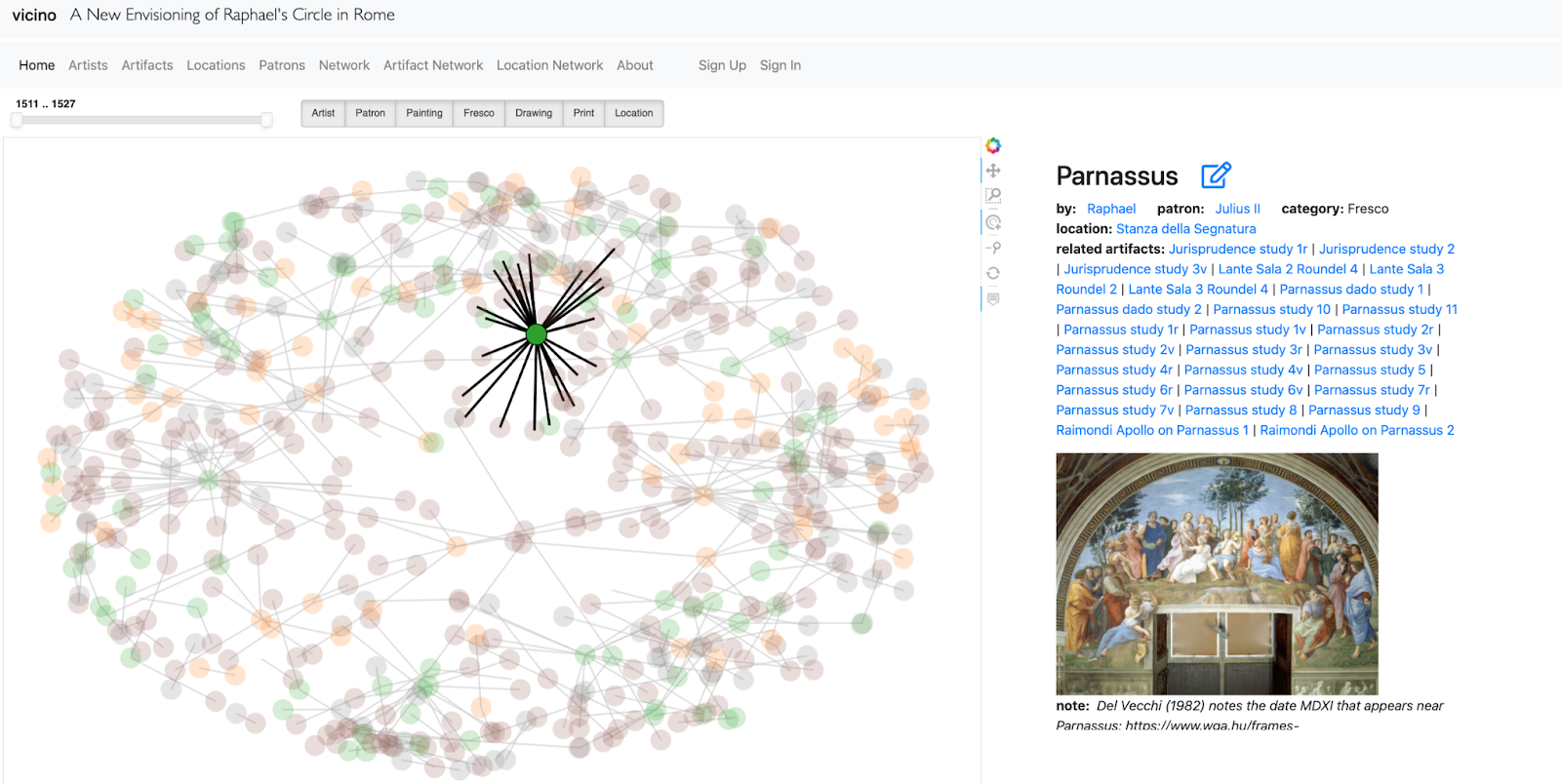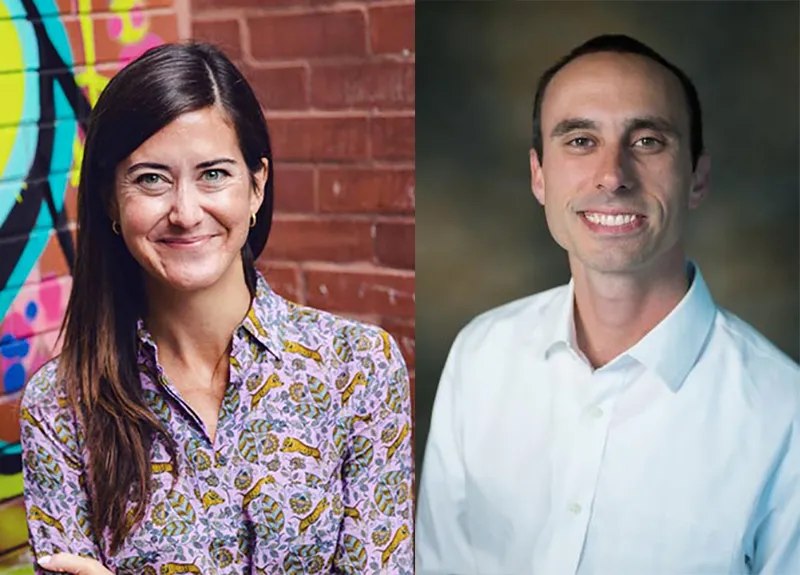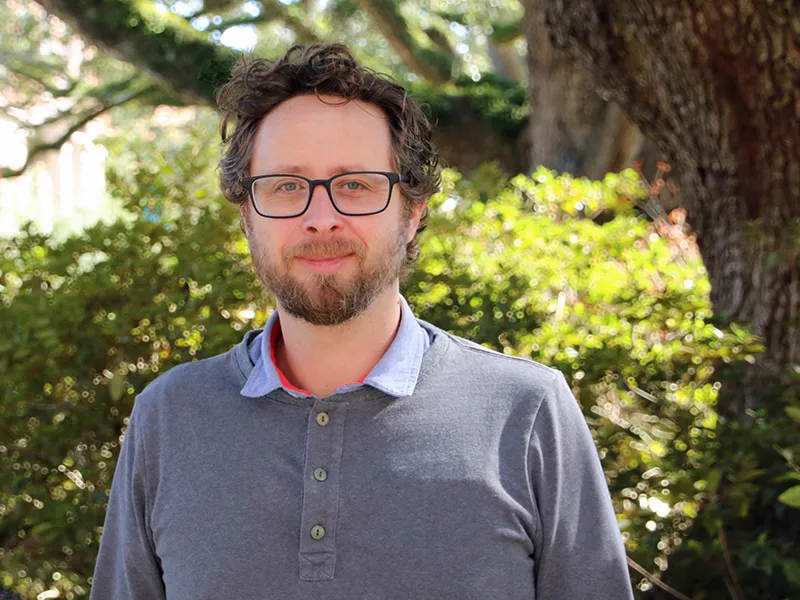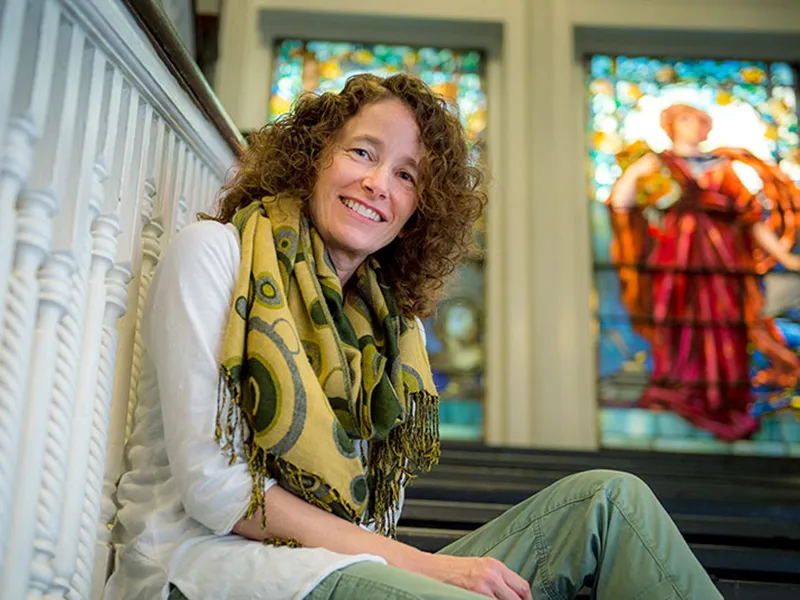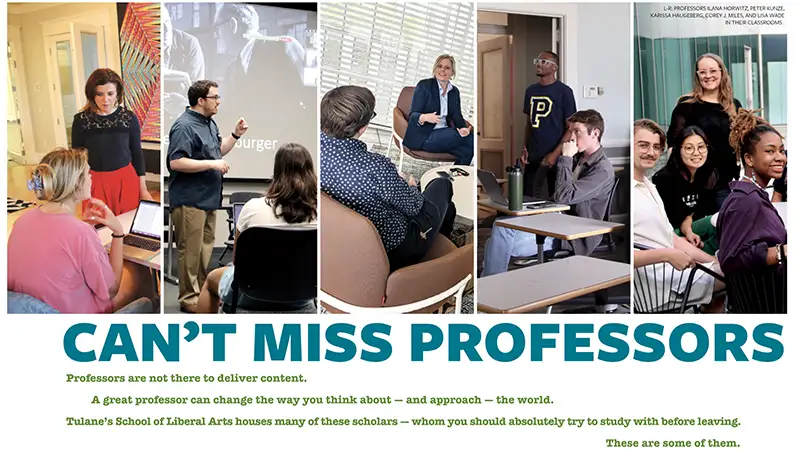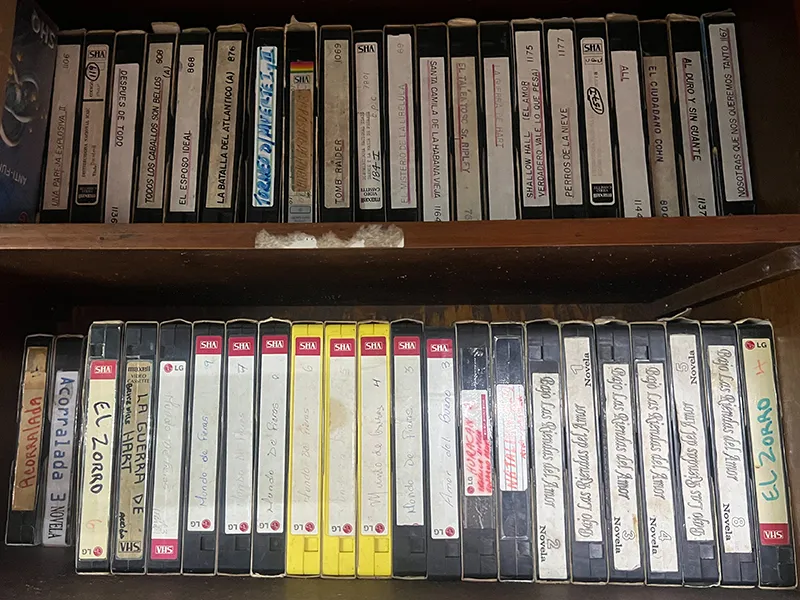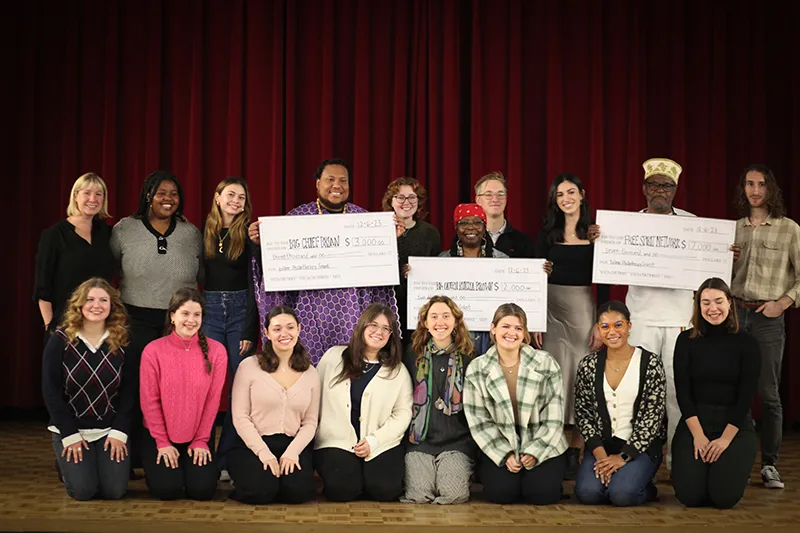School of Liberal Arts March 20 Newsletter

Impact Across Disciplines
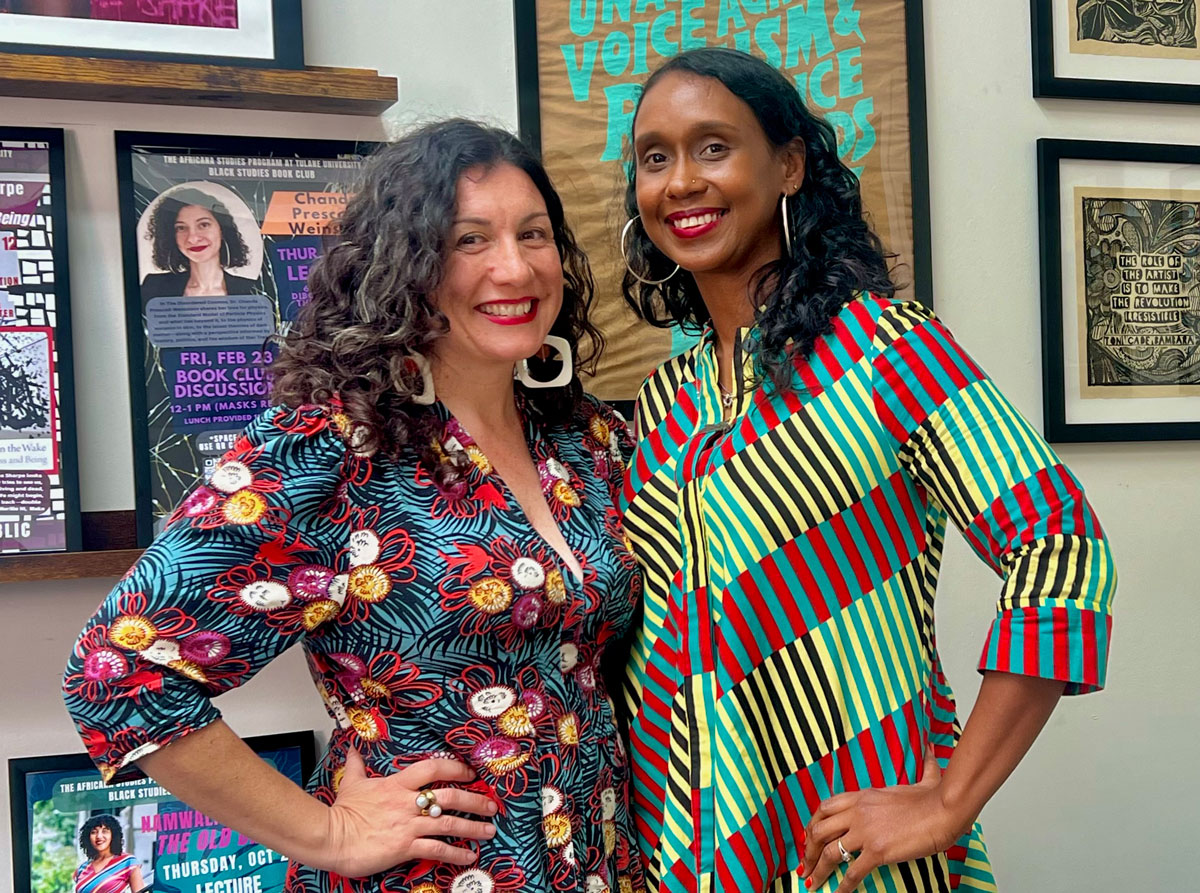
$1M Grant Will Fund New Liberal Arts Graduate Program in Africana Studies & Art
The Mellon Foundation awarded a four-year, $1 million grant to the Africana Studies Program and Newcomb Art Department for the development of the Crossroads Cohort, in which students can pursue novel graduate study at the intersection of both disciplines.
Students Recap Key University Events
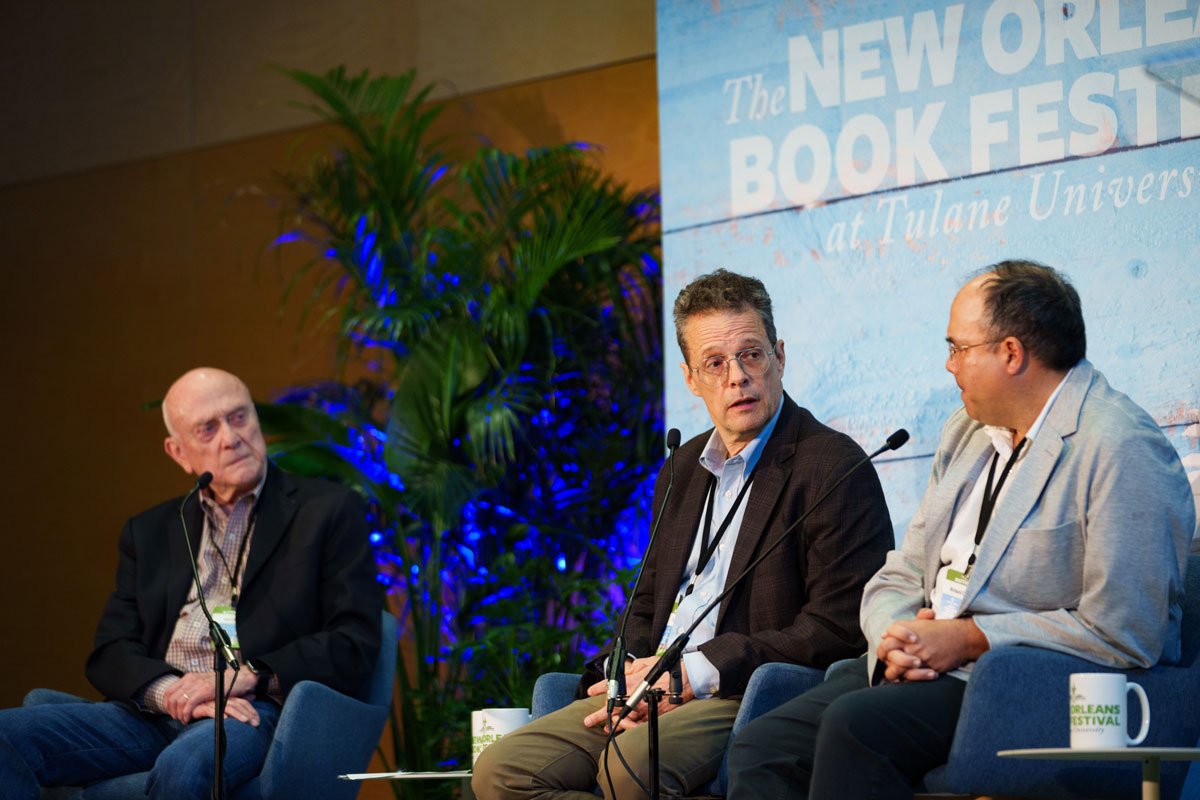
Liberal Arts Take 2024 Book Fest Stage
Four English majors share their highlights from last weekend's "Mardi Gras for the Mind," which saw a plethora of School of Liberal Arts faculty, staff, and alumni featured on panels throughout Tulane's third literary festival.
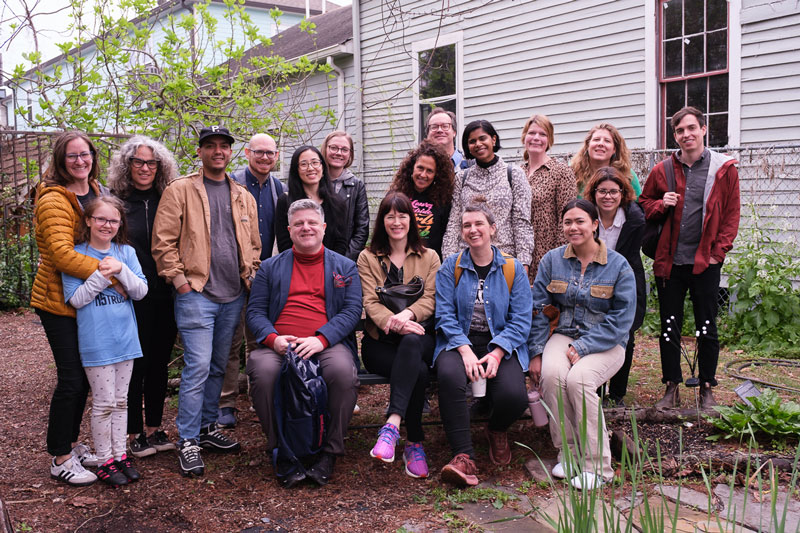
Third Gulf Coast Connections Conference
Political Science & Environmental Studies double major Lucie Jain (SLA '26) reflects on this interdisciplinary event addressing how environmental thinking impacts community. Hosted by Tulane, in collaboration with Rice University.
Department of Theatre & Dance – Box Offices Highlights
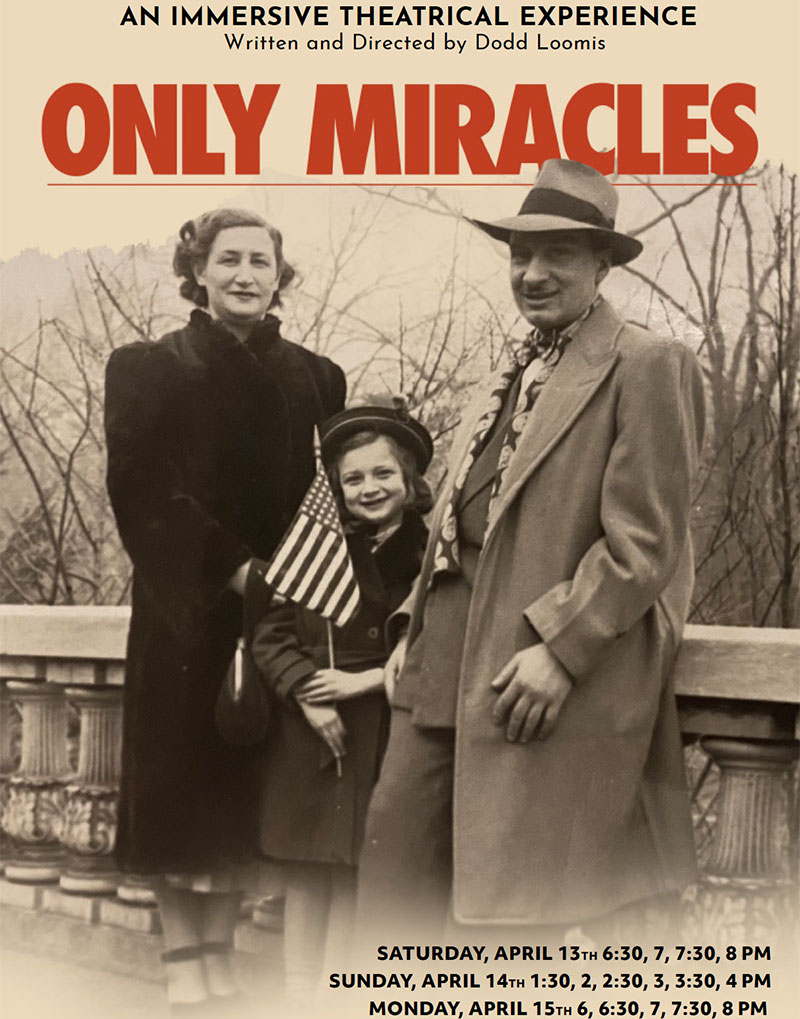
Only Miracles: April's Interactive Historical Experience Created by MFA Candidate
In this three-part immersive theater experience written and directed by department instructor Dodd Loomis, visitors are transported back to the real-life journey of two Holocaust survivors.
The show is produced by the Department of Theatre & Dance at Tulane, the Stuart and Suzanne Grant Center for the American Jewish Experience, and Touro Synagogue.

Lineup for 57th Season of Summer Lyric Theatre at Tulane Announced
Head to the box office today to secure your seats for our 2024 Summer Lyric Theatre weekend productions of Sweeney Todd, Anything Goes, and Pippin.
When temperatures rise, NOLA theaters cool down. Join us Uptown for monthly musicals directed by prominent faculty and engaged performing arts alumni!

Save the Date for #GiveGreen2024!
Donations on #TUGiveGreen2024 help fund groundbreaking research, support program and event growth, and develop vital scholarship opportunities through our Annual Fund. Along with the fun of maintaining friendly bragging rights for most individual gifts, this Tulane competition has a major impact on the School of Liberal Arts, and we can’t do it without you!

102 Newcomb Hall • New Orleans, LA 70118
liberalarts.tulane.edu



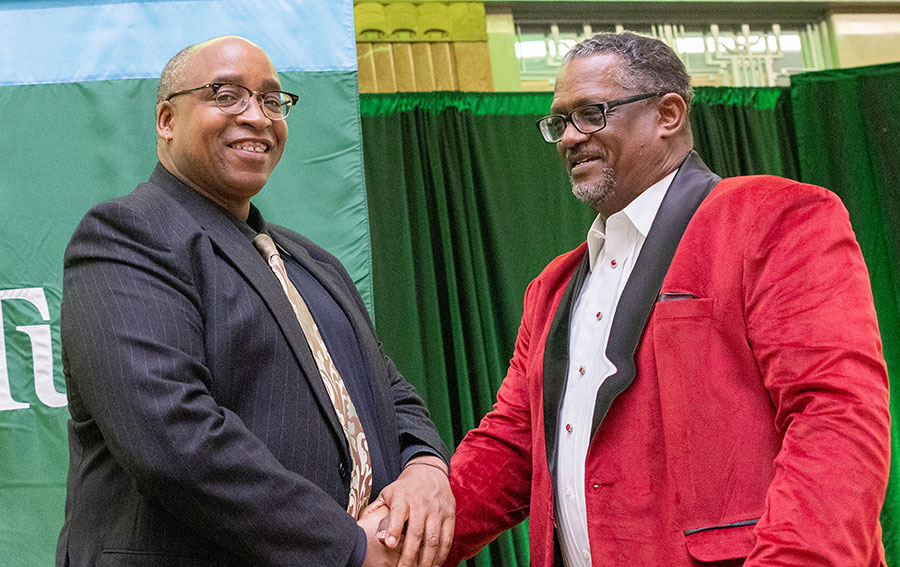 John “Ray” Proctor, an Assistant Professor of Theatre, received the North Star Faculty EDI Leadership Award for his commitment to EDI on Tulane’s campus and within the wider New Orleans community. Proctor, who actively participates in events such as Black student graduation ceremonies and orientations for queer and BIPOC students, served as EDI Director for the 2023 inaugural Newcomb Tulane College Summer Research Institute: EDI and Race — a program aimed at expanding student understanding of EDI and the impacts of race on scholarly research. Last spring, he also organized the
John “Ray” Proctor, an Assistant Professor of Theatre, received the North Star Faculty EDI Leadership Award for his commitment to EDI on Tulane’s campus and within the wider New Orleans community. Proctor, who actively participates in events such as Black student graduation ceremonies and orientations for queer and BIPOC students, served as EDI Director for the 2023 inaugural Newcomb Tulane College Summer Research Institute: EDI and Race — a program aimed at expanding student understanding of EDI and the impacts of race on scholarly research. Last spring, he also organized the 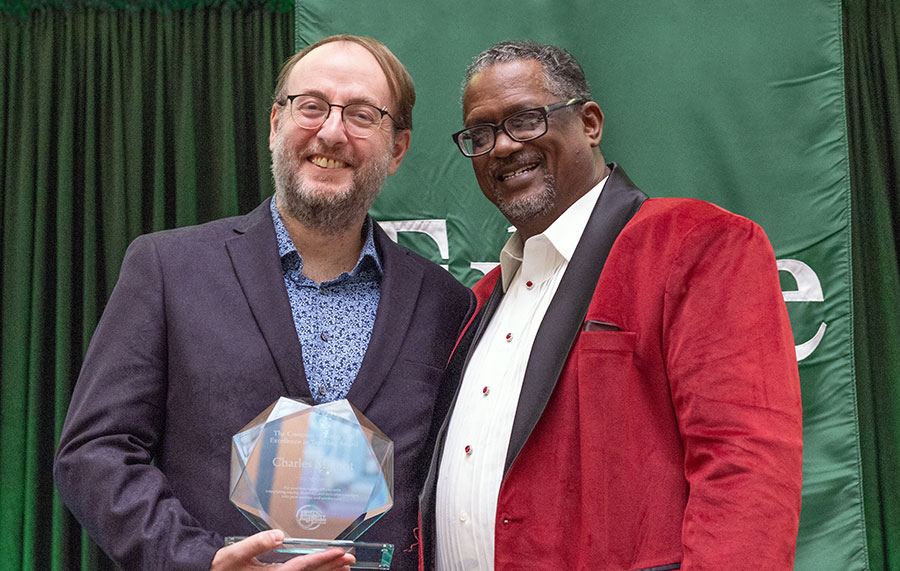 Charles Mignot, Senior Professor of Practice in French, Director of Linguistics, and Director of the French Language Program, received the Compass Faculty EDI Excellence in Teaching Award, recognizing his success with incorporating EDI methods into his pedagogy. Juliette Papadopoulos, a Ph.D. candidate in French Studies who nominated Mignot, praised his focus on diversity within his courses, where he regularly challenged colonial and Eurocentric views. In an intermediate French class, for example, Mignot encouraged Papadopoulos to include an intercultural module on the topic of race in France, allowing her to dedicate time to teaching the issue. The topic proved very engaging.
Charles Mignot, Senior Professor of Practice in French, Director of Linguistics, and Director of the French Language Program, received the Compass Faculty EDI Excellence in Teaching Award, recognizing his success with incorporating EDI methods into his pedagogy. Juliette Papadopoulos, a Ph.D. candidate in French Studies who nominated Mignot, praised his focus on diversity within his courses, where he regularly challenged colonial and Eurocentric views. In an intermediate French class, for example, Mignot encouraged Papadopoulos to include an intercultural module on the topic of race in France, allowing her to dedicate time to teaching the issue. The topic proved very engaging.